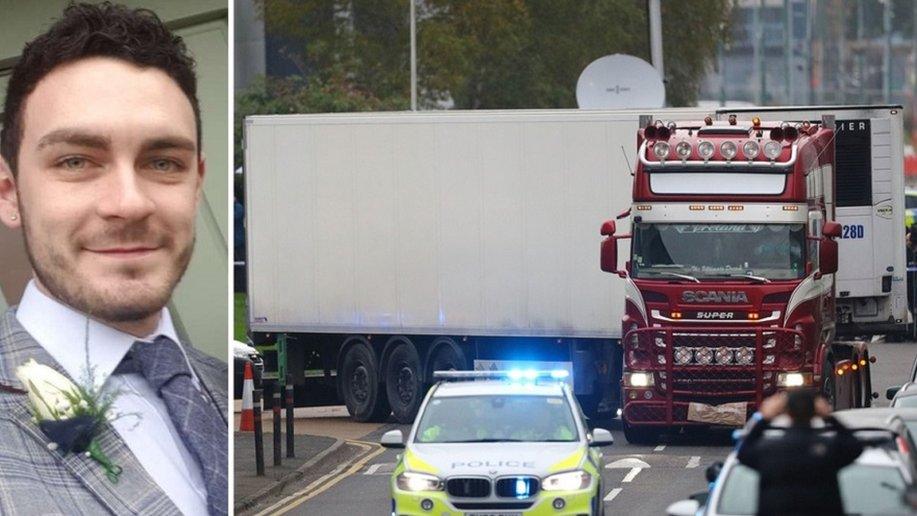Essex lorry deaths: 39 found dead were Chinese nationals
- Published
Thirty nine bodies were found in the trailer container
The 39 people found dead in a refrigerated trailer in Essex were Chinese nationals.
Police have been granted an extra 24 hours to question lorry driver Mo Robinson, 25, on suspicion of murdering the eight women and 31 men.
Three properties in Northern Ireland have been raided and the National Crime Agency is working to establish if "organised crime groups" were involved.
The trailer arrived in Purfleet on the River Thames from Zeebrugge in Belgium.
Ambulance staff discovered the bodies in the container at Waterglade Industrial Park in Grays just after 01:30 BST on Wednesday.
The lorry and trailer left the port at Purfleet shortly after 01:05.
Police said the tractor unit - the front part of the lorry - entered the country via Holyhead in Wales on Sunday, having travelled from Dublin.
Speaking after a magistrate granted Essex Police more time to question Mr Robinson on Thursday, Deputy Chief Constable Pippa Mills said her priority was "preserving the dignity of the 39 people who have died and ensuring that we get answers for their loved ones".
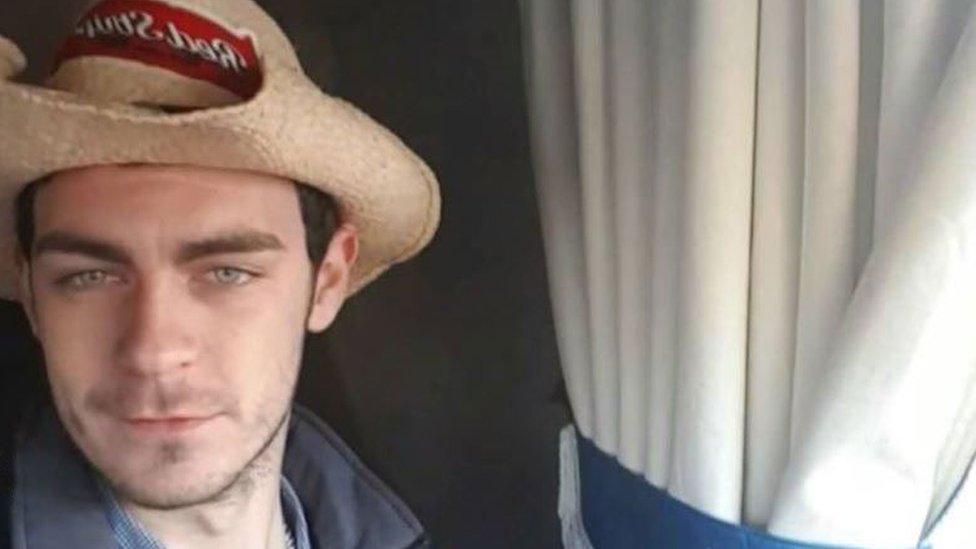
The lorry driver has been named locally as Mo Robinson, from County Armagh
Councillor Paul Berry said the village of Laurelvale in County Armagh, where the Robinson family live, was in "complete shock".
He said he had been in contact with Mr Robinson's father, who had learned of his son's arrest on Wednesday through social media.
"The local community is hoping that he [Mo Robinson] has been caught up innocently in this matter but that's in the hands of Essex Police, and we will leave it in their professional hands to try to catch the perpetrators of this," he said.
The lorry has been moved to a secure site at Tilbury Docks and police are due to begin the process of moving the bodies to a mortuary at Broomfield Hospital in Chelmsford.
They will be taken by private ambulance so that post-mortem examinations can take place, with the force expecting all the bodies to have been moved by the weekend.
Global Trailer Rentals Ltd confirmed to RTE News, external that it owned the trailer and said it had leased it on 15 October.
The firm said it had given Essex Police the details of the person and company they had leased it to.
"I've seen people running out of a lorry"
Essex Police said it was the largest murder investigation in the force's history and the victims were all "believed to be Chinese nationals".
It said formal identification of the 39 people, one of whom is a young adult woman, "could be a lengthy process".
China's ambassador to the UK Liu Xiaoming tweeted that the embassy had read the reports of the deaths, external "with heavy hearts" and was in close contact with British police.
Lucy Moreton, from the Immigration Services Union, said the sheer number of containers coming into the UK every day made it impossible to look inside them all.
"We don't have the facility to check the vast majority of freight which arrives in the UK, whether it moves or not," she said.
She said disconnected freight containers were less likely to be searched unless there was "intelligence to the contrary that suggests we need to do that".
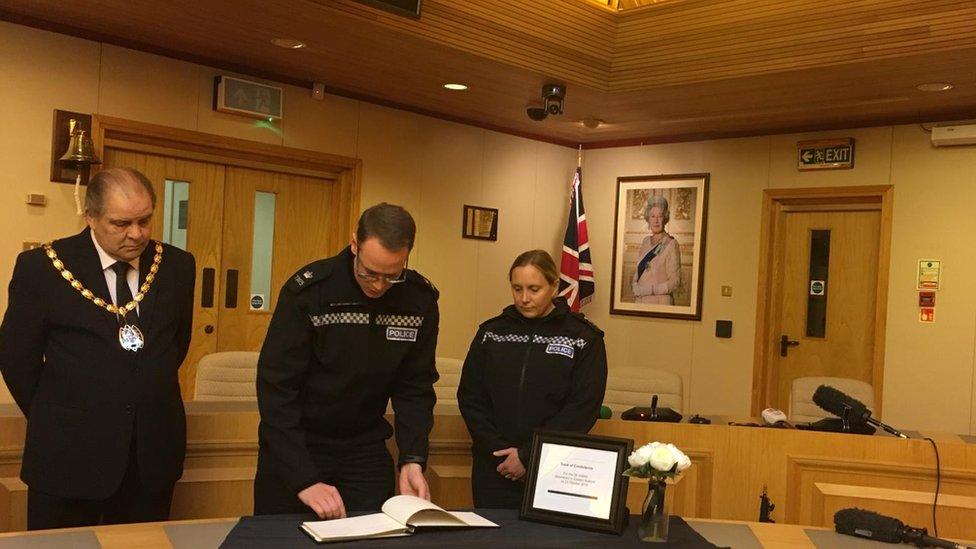
A book of condolences has been opened at Thurrock Council
Police initially suggested the lorry could be from Bulgaria, but later said officers believed it entered the UK from Belgium.
A spokesman for the Bulgarian foreign affairs ministry said the truck was registered in the country under the name of a company owned by an Irish citizen.
The Belgian Federal Public Prosecutor's Office said the container arrived in Zeebrugge at 14:29 on Tuesday and left the port later that afternoon.
It was not clear when the victims were placed in the container or if this happened in Belgium, a spokesman said.
A spokesman for C.RO Ports, which operates terminals at Purfleet and Zeebrugge, said they would "fully assist" the police investigation.
Shaun Sawyer, the National Police Chiefs Council lead for modern slavery and human trafficking, said while forces had prevented thousands of deaths, "tragically, for 39 people that didn't work yesterday".
He told BBC Radio 4's Today programme even if there were routes perceived as easier to get through, organised criminals would still exploit people who could not access those.
CCTV shows the lorry arriving at the industrial park

Analysis
By Celia Hatton, BBC Asia Pacific Regional Editor
When China makes the news headlines, it's often painted as wealthy global power.
However, its boom has also fostered extreme inequality, with the top one percent of Chinese citizens holding one-third of the country's riches. That gap is widening: a continuing trade war with the United States has forced many factories to close, disproportionately punishing some of China's poorest workers.
Surveys have repeatedly found that China's upper and middle class citizens are eager to leave the mainland, citing worries about the lack of high-quality schooling and health care, and lingering pollution and food safety problems.
Poor people in China have the same concerns but they have less opportunity to emigrate overseas. The Chinese government controls who can get a passport and who qualifies for an exit permit. Ever-tightening controls allow people smugglers and human traffickers to prey on those who are desperate to find work.
We don't yet know the story behind why the people found on the Essex lorry had taken that journey. A UK government report on modern slavery published one year ago found that China was the third most common foreign country of origin for victims of human trafficking.

Police officers and councillors have signed a book of condolences which was opened at Thurrock Council's chambers.
A vigil was held at 18:00 outside the Home Office to "call for urgent action to ensure safe passage" for people fleeing war and poverty.
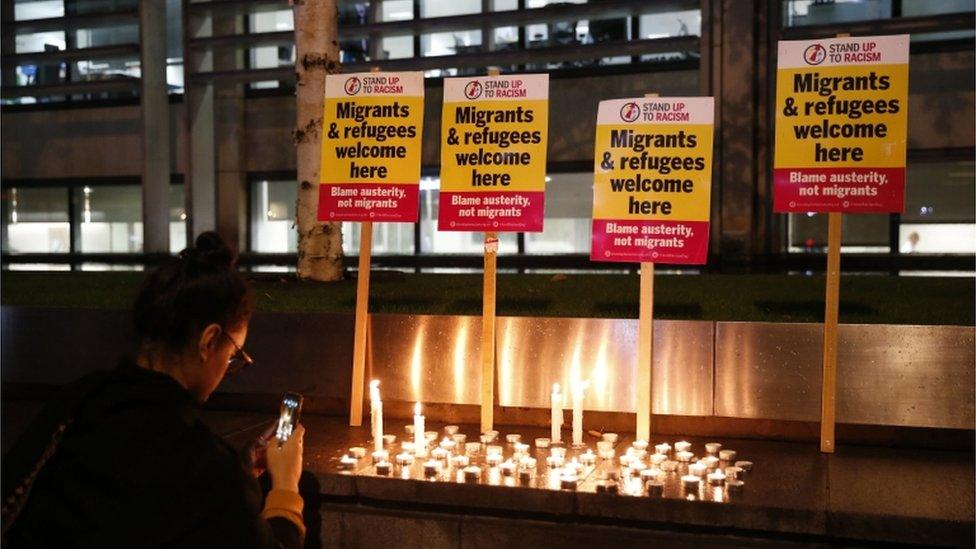
A candlelit vigil was held in memory of the 39 victims
Thurrock's Conservative MP Jackie Doyle-Price said there needed to be an international response.
"We have partnerships in place but those efforts need to be rebooted, this is an international criminal world where many gangs are making lots of money and until states act collectively to tackle that it is going to continue," she said.
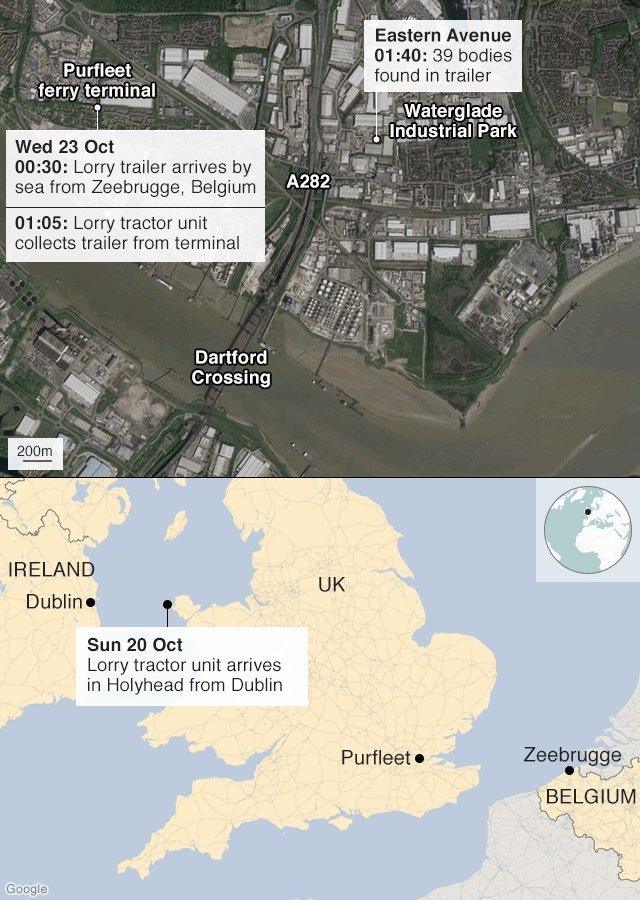

Do you have any information to share about the incident? If it is safe for you to do so please get in touch by emailing haveyoursay@bbc.co.uk, external.
Please include a contact number if you are willing to speak to a BBC journalist. You can also contact us in the following ways:
WhatsApp: +44 7756 165803, external
Tweet: @BBC_HaveYourSay, external
Send pictures/video to yourpics@bbc.co.uk, external
Text an SMS or MMS to 61124 or +44 7624 800 100
Please read our terms of use and privacy policy
- Published4 November 2019
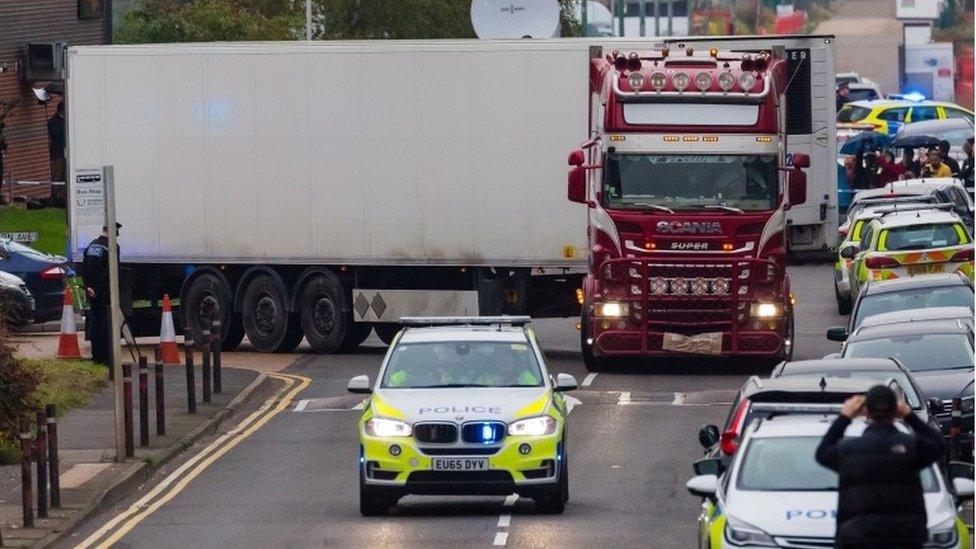
- Published24 October 2019
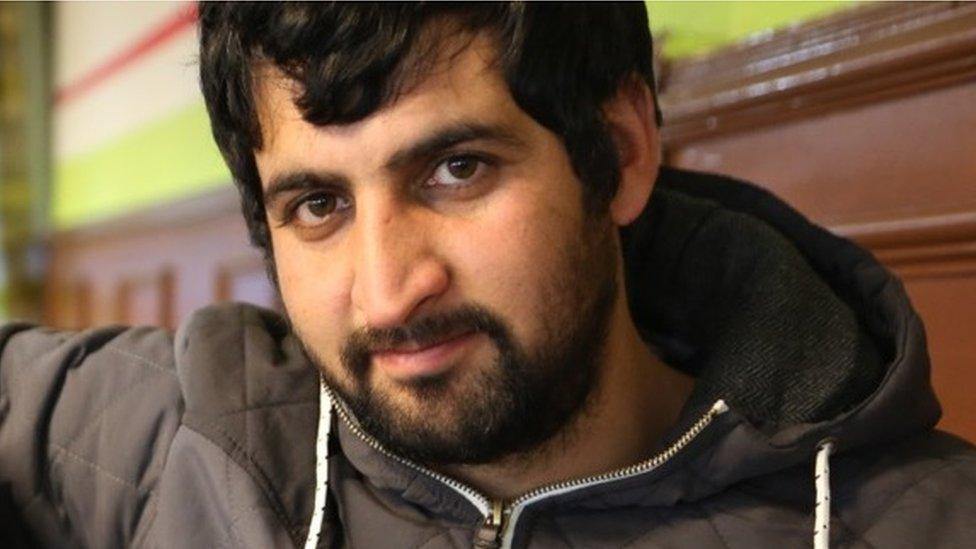
- Published24 October 2019
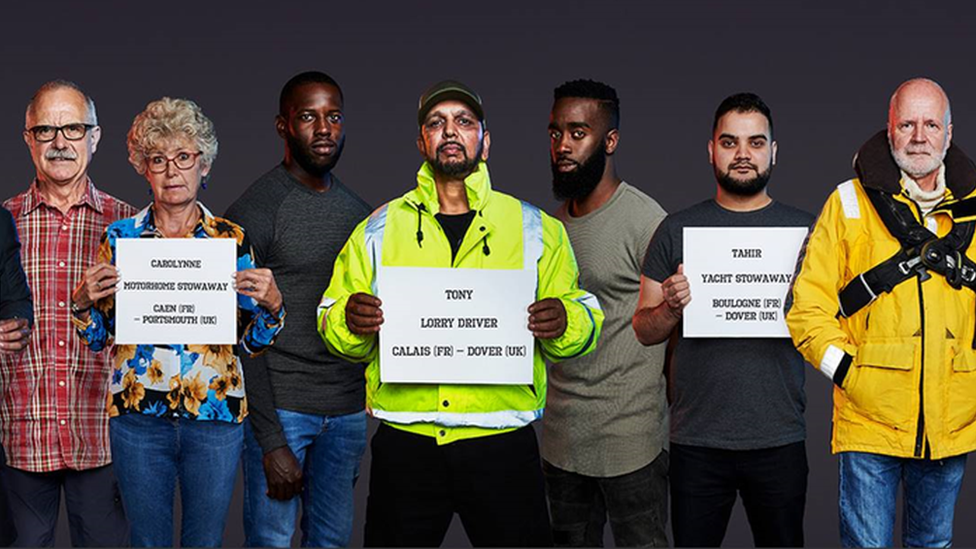
- Published24 October 2019
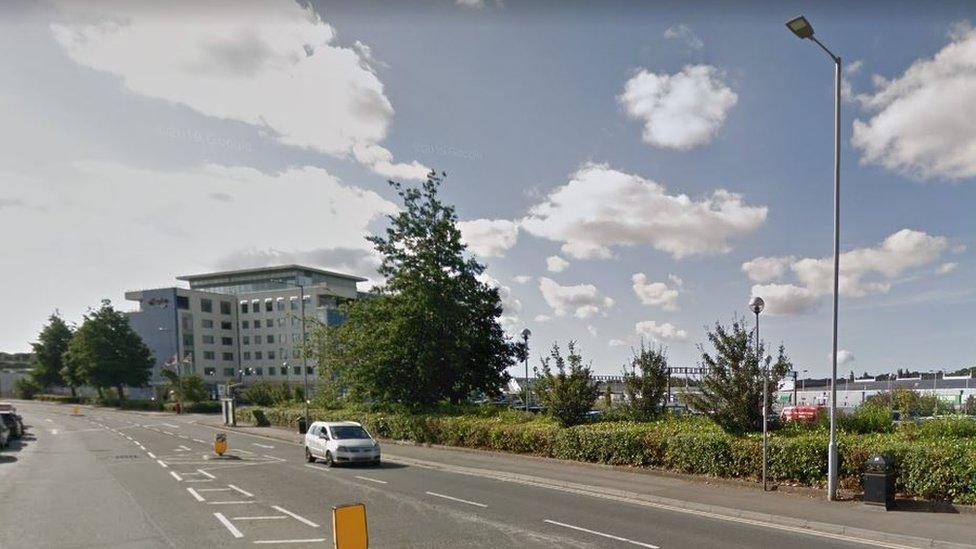
- Published24 October 2019
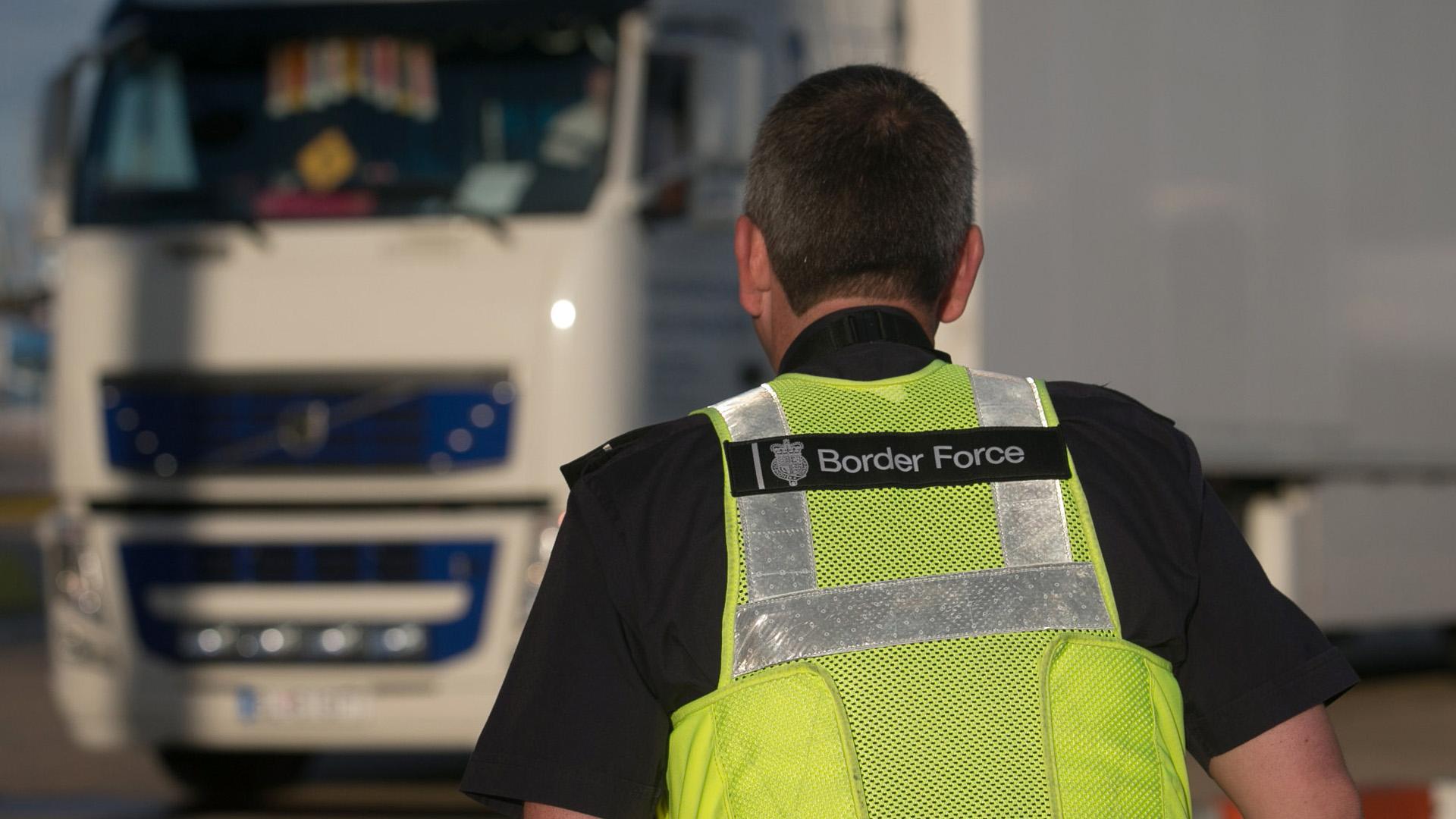
- Published24 October 2019
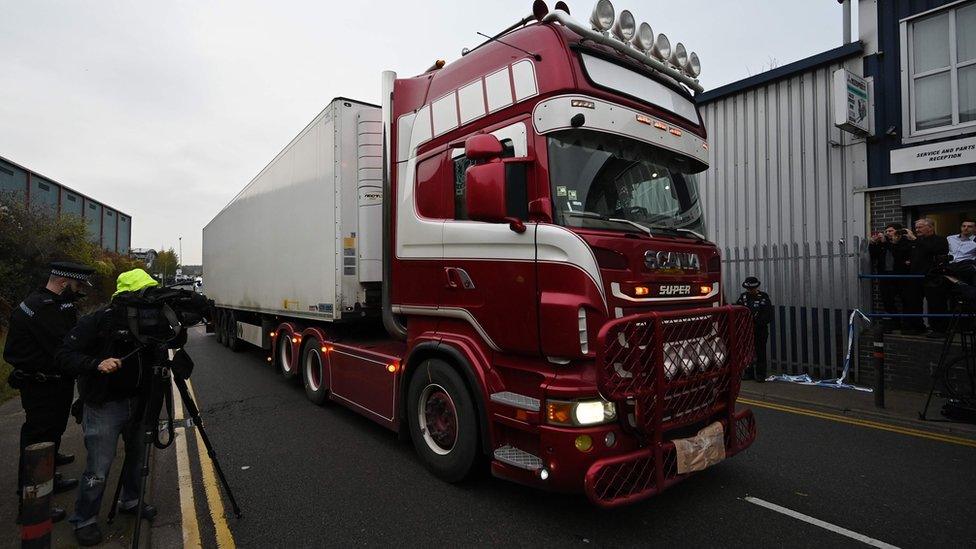
- Published23 October 2019
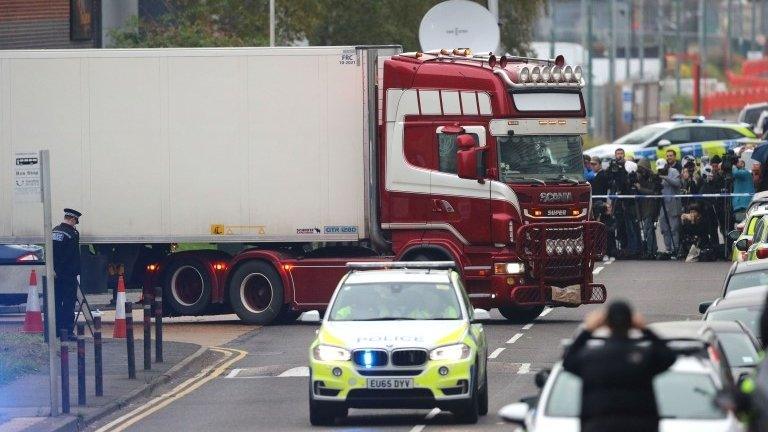
- Published23 October 2019
- Published23 October 2019
